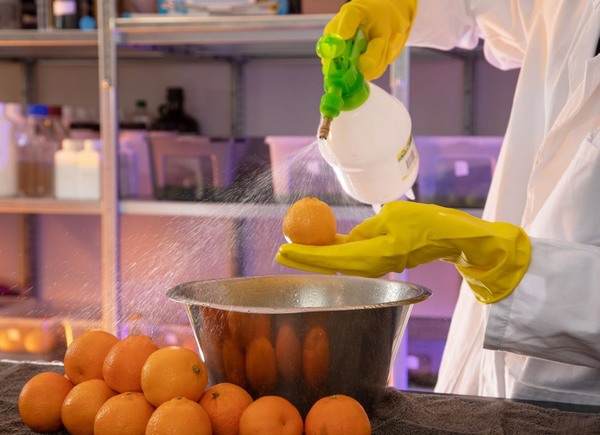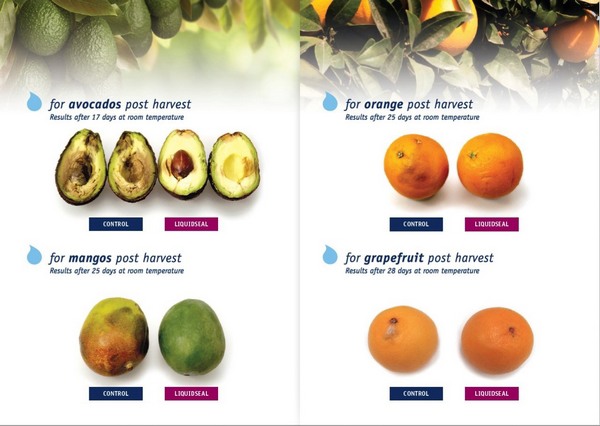According to the German aid organization, Welthungerhilfe, 1.3 billion tonnes of food are thrown away every year. About a third of this amount is food that has gone off or was damaged during transport. A new coating technology from the Dutch company Liquidseal keeps fruit and vegetables fresh for up to twice as long. In this way, the company is helping to avoid food waste and reduce packaging waste.
High-quality polyvinyl alcohols (PVOH) from Kuraray, a speciality chemicals producer, which has its European headquarters in Hattersheim, Germany, play a key role in this. Using the portfolio of high quality PVOH polymers from Kuraray, Liquidseal can optimize its formulations carefully for established processes and adhesion to different types of peel. In addition, Kuraray is supporting the coating experts in registration processes and helping Liquidseal gain access to new areas of application. Liquidseal is currently working on a new edible coating for plums, apples and peaches based on a new PVOH grade: Kuraray Poval™ 5-88 FA.

“When fruit and vegetables come into contact with oxygen, oxidation starts and micro-organisms are able to breed faster. As a result, the fruit or vegetable goes off. To slow this process, so far agricultural producers have used coatings based on wax or sugar, or the produce is wrapped in additional plastic packaging. That is often inefficient and bad for the environment,” explains Glenn Groenewegen, R&D Manager at Liquidseal. “Our new solution can more than double the shelf life of avocados, for example. At the same time, our coatings are far better for people and the environment.” Liquidseal coatings are water-based and do not contain organic solvents. Thanks to highquality Kuraray Poval PVOH materials, they are also fully biodegradable.
In the development of its coating technologies, Liquidseal has worked closely with Kuraray's PVOH experts from the beginning. “Two of our founders, Victor Monster and Eugene van Berg, developed our first coating solution in 2005. That was a coating for bulbs. Our home base in Leiden is known for its lilies and tulips,” says Glenn Groenewegen. “It was clear early on that PVOH offered ideal properties for this application. Kuraray is the biggest producer of this polymer in Europe – with the Kuraray Poval brand – and that's how our collaboration started.”

A very thin layer of Liquidseal coating is applied directly to the peel of fruits such as oranges, lemons and mangoes. To ensure efficient processing of the protective coating and make sure it adheres to the surface and gives the fruits optimum protection from ambient oxygen, polyvinyl alcohols with excellent film-forming and barrier properties are required. Kuraray offers precisely the materials Liquidseal needs for its coating formulations – in consistently high quality. Liquidseal benefits above all from the wide range of PVOH materials marketed by Kuraray.
For more information:
Dr. Bettina Plaumann
Kuraray Europe GmbH
Phone: +49 69 305 85797
Email: Bettina.Plaumann@kuraray.com
www.elastomer.kuraray.com
Internet: www.kuraray.eu
